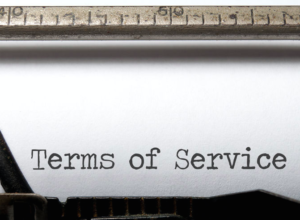 The Customer is King!! The Customer is always Right!! We hear those two phrases a lot these days when talking about customers and sales. So, who are these people who are put up on a throne and are never wrong. Your ability to identify and satisfy your key customers is crucial to your success and your rewards.
The Customer is King!! The Customer is always Right!! We hear those two phrases a lot these days when talking about customers and sales. So, who are these people who are put up on a throne and are never wrong. Your ability to identify and satisfy your key customers is crucial to your success and your rewards.
So, who are your customers. For starters, you have 2 categories of customers, internal and external. An internal customer is anyone who depends ON YOU for his or her success and anyone upon whom YOU depend for YOUR success. This is important because most sales people do not recognize their internal customers. You may have more of these than external customers. These internal customers can be CPA’s Financial Planners, Attorneys, Marketing Professionals, HR Firms, Business Brokers, and Associations. Many of these customers we also refer to as Strategic Partners. Anyone around you who helps you, or you help is an internal customer. Within this category there is also your managers, customer service, accounts receivables/payables, and technical support personnel, as well as outside vendors for raw materials, trucking/logistics, equipment and machinery, computer hardware software and support and the list goes on. These are all your internal customers to one degree or another. Your success is dependent upon these people supporting you well. Mange them as you would your external account base and you will enjoy the rewards of success.
Your second category of customer is your external customers. These are the ones we all know and recognize. They are the people and/or companies that use the product or service we offer. Your ability to accurately identify the external customer whose satisfaction determines YOUR success is critical to every step in the strategic planning process.
What does your customer consider value? What specific benefits does your customer get from using your product or service What does your customer want or need from you to be completely satisfied. How does your product change or improve his life or work?
Once you have identified and answered these questions let’s look forward to the future. We know your business and customer needs and wants will change so it is up to you to stay ahead and anticipate that change. Who will your customer be in the future. Who COULD your customer be if current trends continue? Who COULD your customer be if you were to change your product or offering? Who SHOULD your customers be if you want to rise to the top of your industry or field. How can you upgrade your knowledge, your skills, and your ability to satisfy those customers?
Lastly are there any customers you are working with today who knowing what you know today you would not have started working with? Those who SHOULD NOT be your customers. Successful companies analyze and identify the characteristics of their best customers. Then they sort their customers into high and low value segments. This then allows them to spend more time on their best customers and less time on the lower value customers.
I know a client who applied the 80/20 rule to his customers. Naturally he found that 20% of his customers contributed to 80% of his sales volume and 80% of his profits. So, he went out and fired the 80% of those customers that contributed to 20% or less of his revenues. One by one he handed them off to his competitors that could service them better. Then he focused all his energy on the remaining HIGH VALUE customers. Within 1 year his business and personal income had doubled.
Naturally we all want GREAT customers. Use the above information to help sort and filter your best customers so all of them are KINGs!!
About the Author
 With more than three decades of experience in all facets of sales management, customer service, business growth, and staff coordination, Certified Business Coach Greg Emslie is a focused professional with the tools to help you grow and manage your business effectively.
With more than three decades of experience in all facets of sales management, customer service, business growth, and staff coordination, Certified Business Coach Greg Emslie is a focused professional with the tools to help you grow and manage your business effectively.
Driven by his ability to implement proven business concepts and help improve teams, Greg affects all areas of the companies he works with, including sales, leadership, profitability, and decision-making. He focuses on improving efficiency and processes for his clients while helping them grow their revenue base.
Ready to begin finding other ways to make your company more productive? Let’s get the conversation started. Contact Greg Emslie for a business strategy discussion today.
